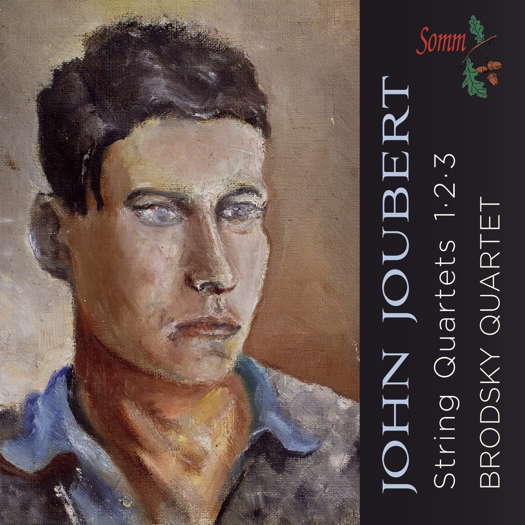- Charlotte Durey
- Dante Alighieri
- Herbert Handt
- Michael Curtis Brewer
- Ciccolini
- Teresa Carreno Cultural Complex
- Malcolm Sargent
- Financial Times

Uncloaking a Sonic Universe
JOHN DANTE PREVEDINI listens to Rebeca Omordia's album 'African Pianism'
'... a compact, balanced and vital gateway to the work of African composers in the Western classical tradition ...'
African Pianism is a recent release from SOMM Recordings featuring a compilation of piano compositions by various composers from around Africa, performed by Nigerian-Romanian pianist Rebeca Omordia with partial percussion accompaniment by Abdelkader Saadoun. The seventy-seven-minute album is available in both CD and digital format, and the liner notes include brief composer biographies and program notes by Robert Matthew-Walker. The goal of the album, as expressed in the liner notes, is to help confront 'the cloak of historical precedent' that has for far too long tended to overlook the vast, complex and completely unique canon of African piano composers working in the Western classical tradition. Here Omordia takes on this daunting responsibility almost single-handedly, bringing a singularly versatile and flexible palette of sharpness, precision and expressive lyricism that I maintain sets her apart from many of her peers.
We first hear the Egun Variations in G major by Nigerian composer Ayo Bankole (1935-1976), which Matthew-Walker tells us is a setting of a folk melody from the Egun culture. The piece unfolds within a harmonic and textural framework that audibly blends European Classicism, Romanticism and Impressionism. This is followed by four excerpts from the eponymous African Pianism - Twelve Pedagogical Pieces by the Ghanaian composer J H Kwabena Nketia (1921-2019). The liner notes quote Nketia himself describing his approach here as 'a style of piano music which derives its characteristic idiom from the procedures of African percussion music as exemplified in bell patterns, drumming, xylophone and mbira music'. The result, as it sounds to me, contains a percussive lyricism that is not only idiomatic for the piano but also refreshingly novel in its sense of melodic shaping and ornamentation.
Listen — J H Kwabena Nketia: Volta Fantasy (African Pianism)
(track 5, 1:00-1:32) ℗ 2022 SOMM Recordings :
Next we hear the exhilarating Ufie (Igbo Dance) by Nigerian composer Christian Onyeji (born 1967). This triptych is described by the composer in the liner notes as 'one of [his] drummistic piano works that seek to realize and transfer Nigerian drumming techniques to the piano', in this specific case using a pitch organization 'drawn from a double pentatonic scale derived from tuned drums of an ukom ensemble'.
Listen — Christian Onyeji: Moderately fast (Ufie)
(track 6, 0:27-0:59) ℗ 2022 SOMM Recordings :
The extraordinary sonic world created by this technique seems to render the piano as both a coloristic and a rhythmic instrument, the resulting harmonic landscape being felt as an inhabited space, so to speak. Indeed, the only other compositional idiom for piano that seems remotely similar to Onyeji's in my memory is from the fellow Nigerian composer Joshua Uzoigwe, whose work I heard about eight years ago and which was apparently also inspired by the ukom tradition.
After this is Five Kaleidoscopes for Piano by Ghanaian composer Fred Onovwerosuoke (born 1960), a work commissioned by Omordia and presented here in its premiere recording. The piece uses what I hear as an exceptionally broad harmonic, textural and timbral palette to convey a series of programmatic scenes recalling natural landscapes, wildlife and folktales from around the African continent. This is followed by an excerpt from Scenes from a South African Childhood by composer David Earl (born 1951), a movement titled 'Princess Rainbow'. Here, according to the liner notes, he programmatically recounts a fond memory of trout fishing with his father along the Eerste River in Western Cape Province, and the overall effect strikes me as charmingly cinematic. The next four tracks feature previously unrecorded works by Moroccan composer Nabil Benabdeljalil (born 1972), specifically three of his nocturnes and the composition En attente du printemps, the latter of which utilizes a duo of piano and tār drum. Benabdeljalil flawlessly and accessibly incorporates Arabic traditions of melodic development within Chopin-esque pianistic models, and I foresee his music having the potential to resonate with large numbers of listeners.
Listen — Nabil Benabdeljalil: Nocturne V
(track 16, 1:40-2:10) ℗ 2022 SOMM Recordings :
We end with Three Yoruba Songs Without Words by the Nigerian composer and professor Akin Euba (1935-2020). The liner notes tell us that Euba developed a school of 'African Pianism' independent of the aforementioned system of Nketia (based on similarities between the piano and various traditional Nigerian instruments), and that his composition here is a triptych of three popular Yoruba melodies arranged for piano. The first movement is accompanied by the tār. This piece seems to me an apt summation of the various strategies we have already heard presented over the entire album by composers for introducing African elements into their work - particularly the use of the piano to imitate traditional instruments along with Western techniques of variation and harmonization of traditional melodies.
Listen — Akin Euba: L’ori Oke ati petele (Three Yoruba Songs Without Words)
(track 21, 0:26-1:01) ℗ 2022 SOMM Recordings :
In summary, I consider this release to be a compact, balanced and vital gateway to the work of African composers in the Western classical tradition, especially in the piano genre. In addition, I urge audiences to begin approaching this album by thoroughly reading the liner notes to inform their listening, because there are crucial cultural and place-based references throughout this music that might otherwise remain unheard - or misheard - by those unfamiliar with the composers' worlds. Furthermore, I see this album as encouraging us to dive even deeper into studying the histories and traditions of the places and communities that have shaped the creative voices heard on this disk. The 'cloak of historical precedent', as Matthew-Walker puts it, has been centuries in the making, and it will take a great deal of collective sustained effort for us all to help lift that cloak and thereby make the world of Western classical music both richer and more inclusive.
Copyright © 20 March 2022
John Dante Prevedini,
Connecticut, USA

CD INFORMATION: AFRICAN PIANISM
CLASSICAL MUSIC ARTICLES ABOUT NIGERIA
CLASSICAL MUSIC ARTICLES ABOUT GHANA
CLASSICAL MUSIC ARTICLES ABOUT MOROCCO
CLASSICAL MUSIC ARTICLES ABOUT SOUTH AFRICA
RECENT CLASSICAL MUSIC CD REVIEWS




